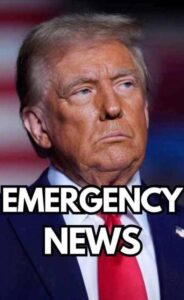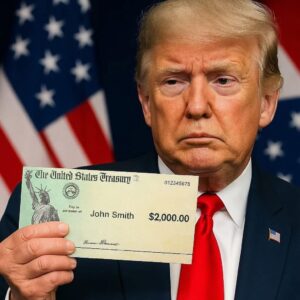President Donald Trump’s latest executive order has ignited intense debate across the United States and beyond.
Framed as a measure to combat anti-Semitism, the order goes much further than most observers expected by tying immigration policy directly to campus protests.
Under its provisions, international students who participate in demonstrations deemed “anti-Israel” could face visa revocation and possible deportation.

Critics argue that this sweeping approach risks punishing peaceful dissent, silencing legitimate political speech, and undermining the very principles of democracy that the nation has long claimed to defend.
The order comes at a time of heightened campus activism surrounding the Israeli-Palestinian conflict, with student groups across the country staging protests, encampments, and sit-ins. While some demonstrations have been tense, many have remained peaceful. Trump’s new directive, however, effectively equates pro-Palestinian advocacy with anti-Semitism—a conflation that scholars, civil rights advocates, and even some Jewish organizations say is dangerously broad. By blurring the line between anti-Semitism and criticism of Israeli policy, the administration stands accused of weaponizing immigration law to suppress political opposition. For many observers, it marks a profound escalation in the use of executive authority to shape what kind of speech is permissible on college campuses.
Under the order, the Departments of State and Homeland Security are instructed to identify and sanction noncitizen students who “advocate, aid, or support” activities that are considered anti-Semitic or hostile to Israel. Though the order doesn’t explicitly define what qualifies as “anti-Israel,” internal memos reportedly interpret participation in certain protests, social media activity, or campus organizing as grounds for visa review. Immigration attorneys warn that this vague language could be used to justify deportations without due process. The order also allows universities to lose federal funding if they fail to “cooperate fully” with federal investigations into campus protests.
For international students—numbering more than a million nationwide—the implications are severe. Many of them now face a chilling dilemma: remain silent or risk losing their education, their immigration status, and their future in the United States. University administrators across the country have reported a flood of inquiries from panicked students unsure of whether they can attend demonstrations, sign petitions, or even express opinions online. Some have already withdrawn from campus organizations out of fear. In effect, the order has created a climate of anxiety and self-censorship, reaching far beyond the Israel-Palestine debate.
Civil rights groups and academic organizations have responded forcefully. The American Civil Liberties Union condemned the measure as “a blatant attempt to criminalize dissent,” warning that it undermines both free speech and equal protection. The American Association of University Professors criticized it as “an assault on academic freedom,” and international human rights organizations compared it to policies in authoritarian countries that use national security rhetoric to justify silencing political critics. Foreign governments have also expressed alarm. Several European and Middle Eastern diplomats publicly questioned how the United States can promote democratic freedoms abroad while restricting them at home.
Supporters of the order argue that it’s a necessary response to rising anti-Semitic incidents on college campuses, pointing to reports of harassment against Jewish students during protests. They claim that what is often framed as “anti-Israel” activism crosses into hate speech, creating a hostile environment. For these advocates, using immigration law as a deterrent is justified, as it sends a message that intolerance won’t be tolerated. However, critics counter that this rationale is deeply flawed: it punishes entire communities of international students, conflates political disagreement with prejudice, and fails to address anti-Semitism through education or dialogue.
Universities are now caught in the middle, struggling to balance compliance with the order against their responsibility to protect students’ rights. Some institutions have quietly begun advising international students to avoid protests altogether, while others have announced plans to challenge the order in court. Harvard, Stanford, and the University of California system have all expressed concern that the measure violates the First Amendment and undermines the mission of higher education as a forum for open debate. Faculty members worry that the policy will also discourage research and discussion on Middle Eastern politics, effectively narrowing academic inquiry.
The legal challenges are already mounting. Several advocacy groups have announced plans to file lawsuits, arguing that the executive order violates constitutional protections of free speech, due process, and equal treatment. Lawyers point to Supreme Court precedents affirming that political expression—even when controversial—is protected under the First Amendment. Federal judges are expected to hear the first cases within months, setting up a potential showdown over the limits of presidential power.
Meanwhile, the order’s implementation has begun to reverberate internationally. Reports have surfaced of foreign students having their visa renewals delayed or denied after attending political events. Some embassies have confirmed that U.S. consulates are asking visa applicants whether they have participated in protests or political activism. This new level of scrutiny has drawn condemnation from foreign universities and governments, many of which see it as an intimidation tactic inconsistent with academic exchange.





